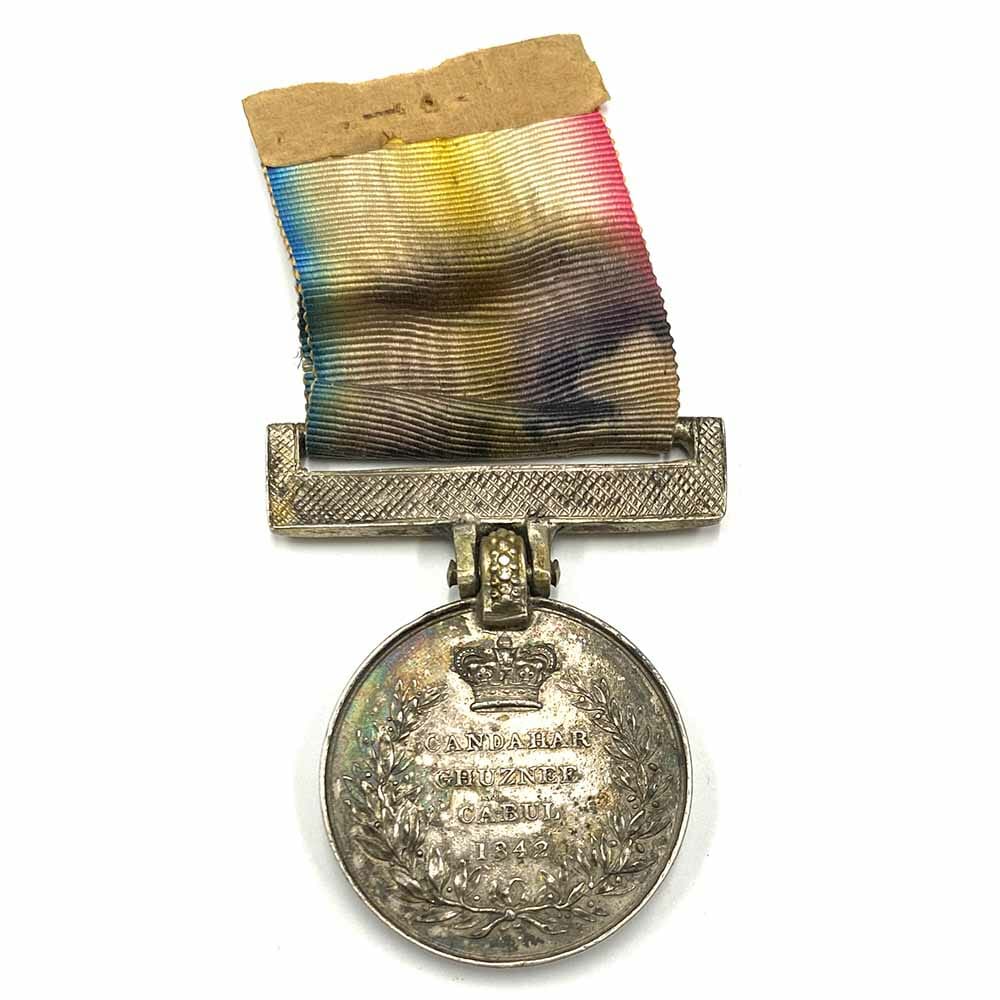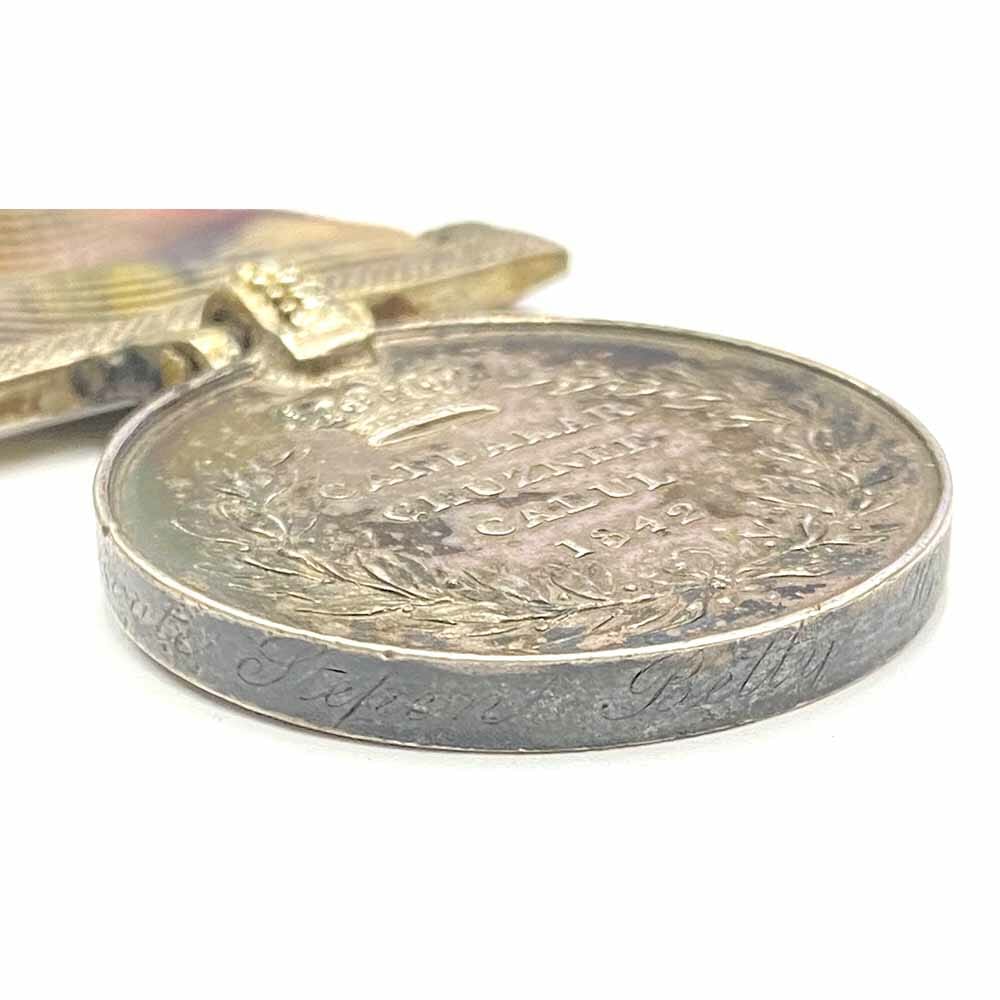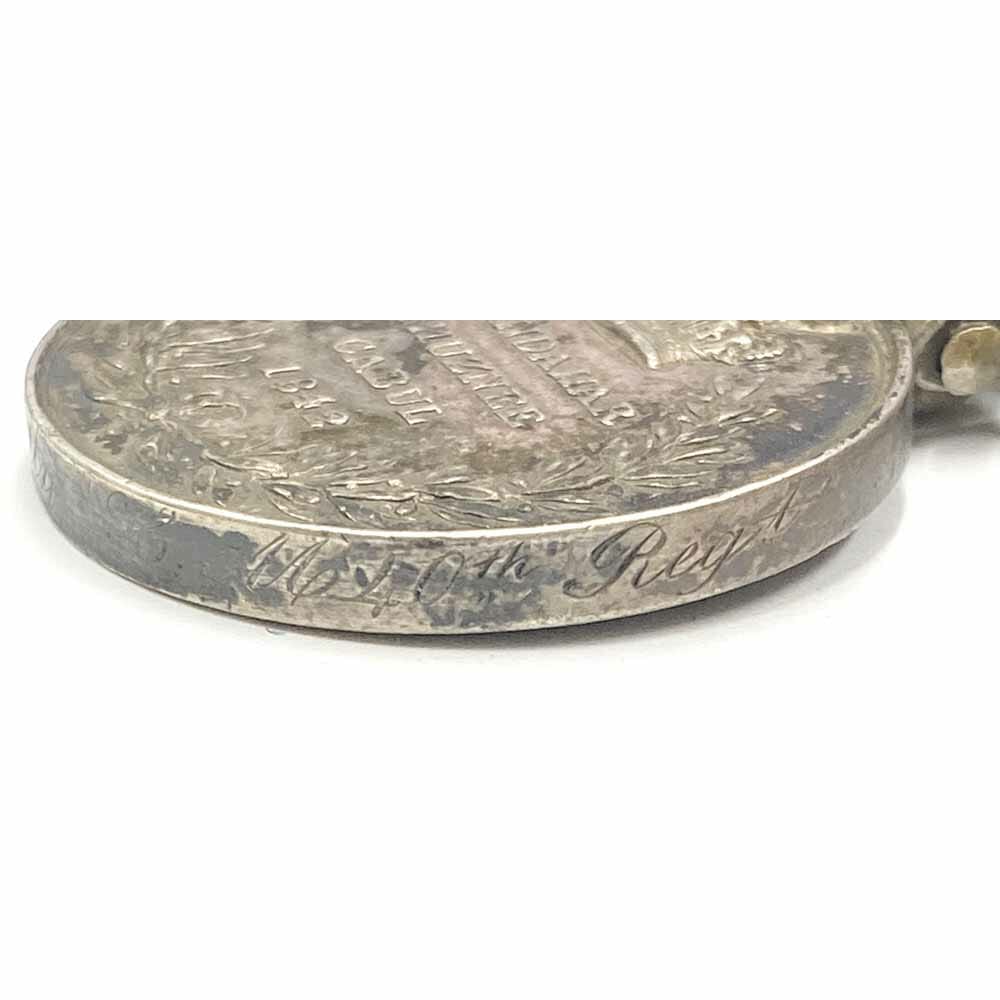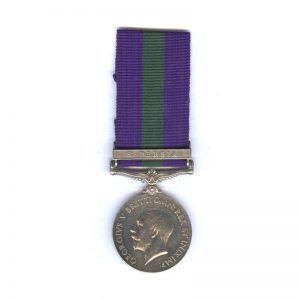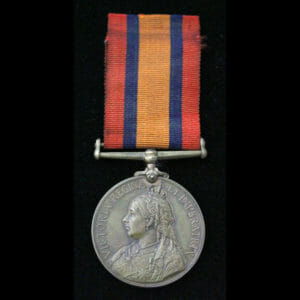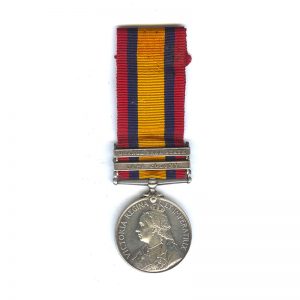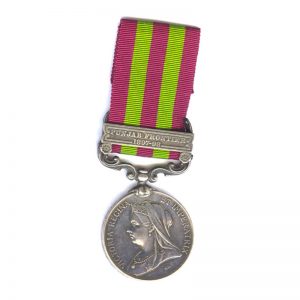Description
Candahar, Ghuznee, Cabul Medal, 1842, Private Stephen Betty, Her Majesty’s 40th Regiment, with an ornate clip and suspension fitted to display the reverse, officially script engraved with copy service papers.
Stephen Betty, an Irishman from Derrybrusk, Longford, spent 19 long years on service in the East Indies, having fought in many battles, having the misfortune of having volunteered to transfer from his regiment twice shortly before they were due to return home, leading to 19 years continuous service in the “East Indies” with the 40th, 28th and 86th Foot and a small stint in prison for being caught opening a cask of “Government Liquor”. He was likely one of the last original men of the 40th Foot so-called “Avenging Army of Afghanistan” with the Army of the Indus to leave the region.
Suspended from a unique wide bar (46mm) with a small diamond pattern fitted to a heavy silver replacement clip with ornate raised design.
Correctly running script engraved: “Private Stephen Betty H. M. 40th Regt.”
The naming is nice and clear, the medal is overall very dark toned from many long years of storage so I have brightened the images of the naming to display the lovely engraving.
From a collection formed in the 1950s and not touched until now, provenance of last sale: Spink Numismatic Circular of 1952, where it fetched £4 5s.
Stephen Betty was born during 1812 in Derrybrusk, Longford, Ireland. He made his way to Leeds where he attested for service on 22nd December 1833 aged 21 for service with the 40th Regiment of Foot. His papers read “To India 1834”.
He would serve 20 years and 353 days, with 19 years of that spent overseas in the East Indies.
His conduct sheet describes him as:
“He was convicted by a Regimental Court Martial on 28th November 1845 of having attempted to open a cask of Government Liquor, and of disobedience of orders, and sentenced to 20 days imprisonment, that on general sheet appears against him, and his character and conduct have been good, he being in possession of 3 good conduct badges without pay.”
He volunteered to transfer to the 28th Foot on 1st November 1844, with whom he was caught red handed with the “Government Liquor”, which was probably well deserved after the trials and tribulations of the 40th Somersetshire Regiment Foot, who had fought in the Capture of Karachi, 1839, the Siege of the Ghuznee Fortress, surviving one of the worst outbreaks of disease of any regiment of the British Army on the way to Afghanistan. Followed by the Battles of Candahar and then Cabul in August 1842, having only a short break they then fought at the Battle of Maharajpoor.
By volunteering for the 28th, he missed coming home with the 40th in 1845, then again on 30th November 1847, as the 28th Foot were planning their trip back home, he further “Volunteered” for service with the 86th (Royal County Down) Regiment of Foot (future Royal Irish Regiment), who he finished his service with from 1st December 1847 until 30th November 1853.
